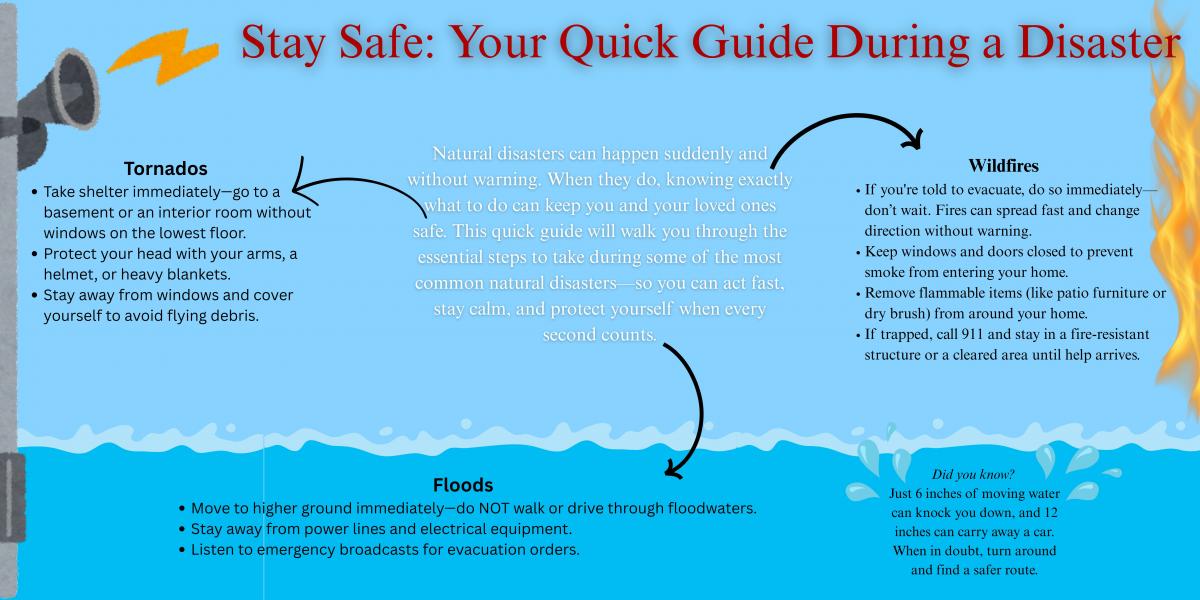Address
104 SE 11th St,
Grand Rapids, MN 55744
Office Number
Non-Emergency: 218-326-7638
Emergency: 911

Disasters can strike with little or no warning. In many cases, local officials and Emergency Responders may not be able to reach everyone right away—it could take hours or even days. That’s why it's critical to prepare ahead of time. When a disaster occurs, you won’t have time to gather supplies or make a plan on the spot.
Most disasters are caused by natural forces—like tornadoes, hurricanes, floods, or winter storms. Some give warning, others don’t. Human-caused events, whether accidental or intentional, can also disrupt daily life. No matter the source, being prepared is your best defense. Use trusted resources like the American Red Cross, FEMA, or Ready.gov to learn what risks are common in your area.
Make a disaster plan that works for any situation. Keep it simple so everyone, especially children, can remember it. Put together an emergency kit with water, food, first aid, and essentials to last at least 72 hours. Practice your plan regularly so everyone knows what to do—even under stress.
Disasters are confusing and frightening, especially for kids. They rely on routines, and any disruption can cause anxiety. Your reactions matter—children look to adults for reassurance. Stay calm, involve them in the planning and recovery process, and let them know it’s okay to feel scared. Giving them a role helps them feel secure and hopeful.